New insights into alcohol research, policy and practice
19 June 2019 - London
Alcohol Change UK Conference 2019
New insights into alcohol research, policy and practice
19 June 2019 - London
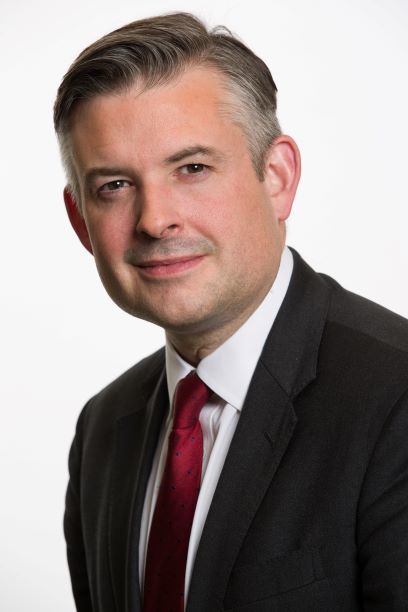 Jon was elected Member of Parliament for Leicester South at a by-election in May 2011. In October 2016, he was appointed Shadow Secretary of State for Health and Social Care, by Jeremy Corbyn, having previously served as Shadow Minister without Portfolio. Jon was also in Ed Miliband’s front bench team as Shadow Cabinet Office Minister from October 2013. Before becoming an MP, Jon worked in the Treasury as a special advisor to Gordon Brown when he was Chancellor, and continued to work for Gordon Brown when he became Prime Minister. Outside of politics, Jon is a keen book-worm, and runner and ran the marathon for the third time in April. Jon and his wife have two little girls and live in Leicester.
Jon was elected Member of Parliament for Leicester South at a by-election in May 2011. In October 2016, he was appointed Shadow Secretary of State for Health and Social Care, by Jeremy Corbyn, having previously served as Shadow Minister without Portfolio. Jon was also in Ed Miliband’s front bench team as Shadow Cabinet Office Minister from October 2013. Before becoming an MP, Jon worked in the Treasury as a special advisor to Gordon Brown when he was Chancellor, and continued to work for Gordon Brown when he became Prime Minister. Outside of politics, Jon is a keen book-worm, and runner and ran the marathon for the third time in April. Jon and his wife have two little girls and live in Leicester.
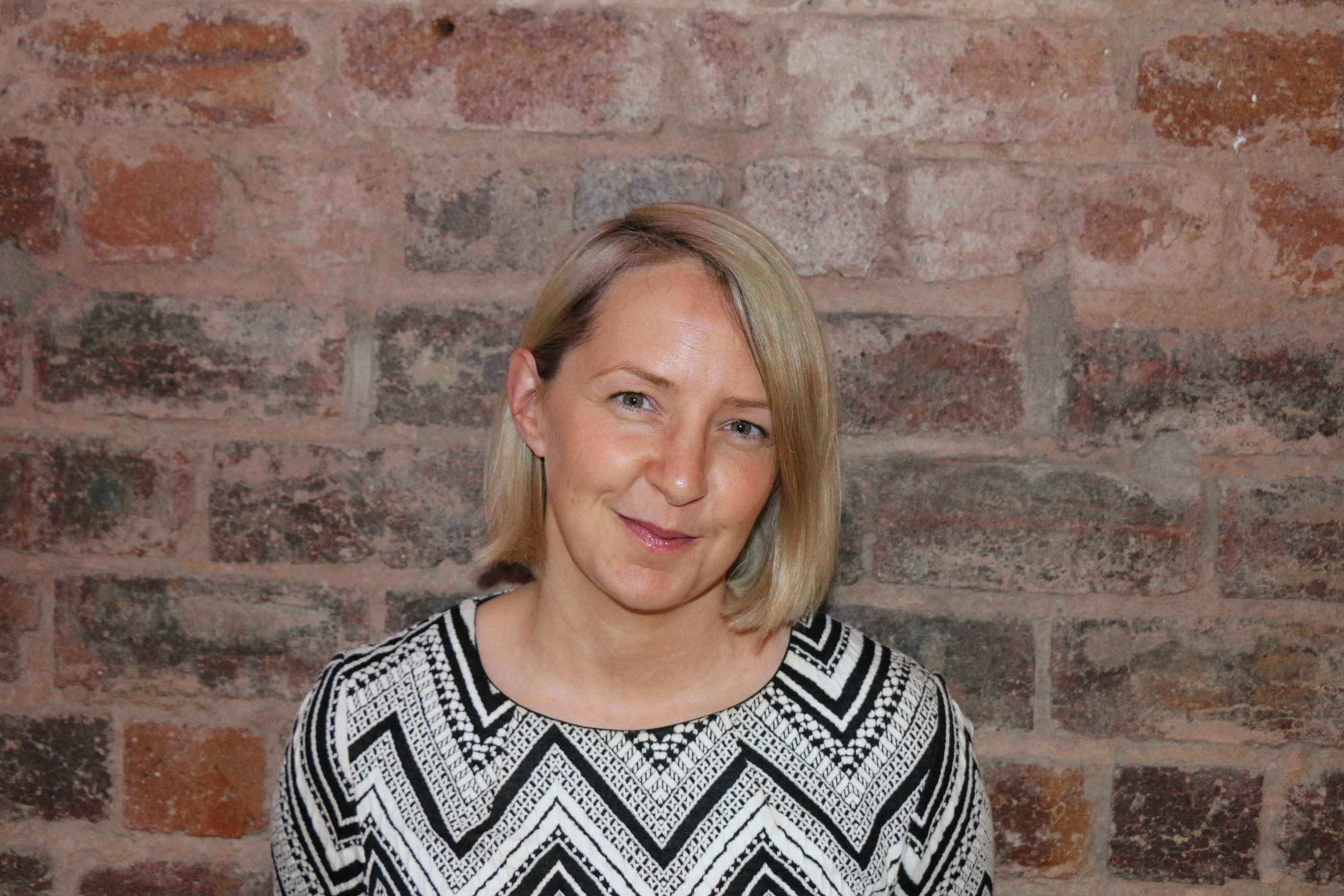 Julie Breslin has worked in the homelessness and addiction field for over twenty years, starting her career in Dublin with the charity Focus Ireland. In 1998 she moved to Glasgow and following the completion of a Post Grad Diploma in Addictions began working in statutory addiction services. Julie began working for the behaviour change charity Addaction in 2006 and since then has established and managed a number of alcohol support services. In 2009 with funding from the Big Lottery Fund, Julie set up the Over 50s Alcohol Service in Glasgow. The service received a number of accolades including the Herald Society Awards Health Provider of the year in 2012. Julie is committed to understanding and responding to the needs of older adults with substance misuse problems and is currently head of the UK wide Drink Wise, Age Well programme.
Julie Breslin has worked in the homelessness and addiction field for over twenty years, starting her career in Dublin with the charity Focus Ireland. In 1998 she moved to Glasgow and following the completion of a Post Grad Diploma in Addictions began working in statutory addiction services. Julie began working for the behaviour change charity Addaction in 2006 and since then has established and managed a number of alcohol support services. In 2009 with funding from the Big Lottery Fund, Julie set up the Over 50s Alcohol Service in Glasgow. The service received a number of accolades including the Herald Society Awards Health Provider of the year in 2012. Julie is committed to understanding and responding to the needs of older adults with substance misuse problems and is currently head of the UK wide Drink Wise, Age Well programme.
 Africa Brooke is a writer, speaker, mindset coach and a woman on a mission to encourage transparent conversations surrounding holistic self-development, business, sober living, and sexual wellness. She is primarily known as the Founder & Director of personal and professional development company Discovery Dive, as well as Sexual Wellness company The Cherry Revolution. She openly states that both of these ventures are a direct result of her well-documented 3-year sobriety and self-exploration journey, all of which has allowed her to organically build a global community of over 20,000 people. Africa’s work and personal journey has been featured in the Independent, the iPaper, the Metro, The Temper, gal-dem. She’s also appeared as a guest on ITV, BBC Asian Network Radio, BBC 1Xtra, Real Talk Radio, BBC Radio 1 'Life Hacks' podcast, and was recently invited to deliver a keynote at Cambridge University.
Africa Brooke is a writer, speaker, mindset coach and a woman on a mission to encourage transparent conversations surrounding holistic self-development, business, sober living, and sexual wellness. She is primarily known as the Founder & Director of personal and professional development company Discovery Dive, as well as Sexual Wellness company The Cherry Revolution. She openly states that both of these ventures are a direct result of her well-documented 3-year sobriety and self-exploration journey, all of which has allowed her to organically build a global community of over 20,000 people. Africa’s work and personal journey has been featured in the Independent, the iPaper, the Metro, The Temper, gal-dem. She’s also appeared as a guest on ITV, BBC Asian Network Radio, BBC 1Xtra, Real Talk Radio, BBC Radio 1 'Life Hacks' podcast, and was recently invited to deliver a keynote at Cambridge University.
 Pete Burkinshaw works for Public Health England as the alcohol and drug treatment and recovery lead in the Alcohol, Drug, Tobacco and Justice Division. He leads on adult and young people’s alcohol and drug treatment, including prevention, harm reduction and recovery interventions. He joined the National Treatment Agency in 2008 as the Standards & Inspections National Programme Lead, leading the joint NTA & Healthcare Commission drug treatment reviews and was then appointed as the Skills and Development Manager in December 2009. Pete started working in the substance misuse field as a practitioner in 1992 and has worked in and managed a variety of services, including young people’s, residential and adult community based services until 2005. From 2005 to 2008, he worked as a freelance consultant delivering substance misuse service and treatment system reviews and training programmes.
Pete Burkinshaw works for Public Health England as the alcohol and drug treatment and recovery lead in the Alcohol, Drug, Tobacco and Justice Division. He leads on adult and young people’s alcohol and drug treatment, including prevention, harm reduction and recovery interventions. He joined the National Treatment Agency in 2008 as the Standards & Inspections National Programme Lead, leading the joint NTA & Healthcare Commission drug treatment reviews and was then appointed as the Skills and Development Manager in December 2009. Pete started working in the substance misuse field as a practitioner in 1992 and has worked in and managed a variety of services, including young people’s, residential and adult community based services until 2005. From 2005 to 2008, he worked as a freelance consultant delivering substance misuse service and treatment system reviews and training programmes.
 Alison Douglas joined Alcohol Focus Scotland (AFS) – Scotland’s national alcohol charity - as Chief Executive in December 2015. Her commitment to and experience of preventing and reducing alcohol harm stems from her time as Head of Alcohol Policy and Delivery at Scottish Government from 2007-2012. In this capacity Alison was responsible for developing and implementing Scotland’s national alcohol strategy, “Changing Scotland's Relationship with Alcohol”, including the proposal to establish a minimum unit price for alcohol. She has served as a member of Edinburgh’s Children’s Panel and is a former Poverty Truth Commissioner. Alison tweets @AlisonDouglas18.
Alison Douglas joined Alcohol Focus Scotland (AFS) – Scotland’s national alcohol charity - as Chief Executive in December 2015. Her commitment to and experience of preventing and reducing alcohol harm stems from her time as Head of Alcohol Policy and Delivery at Scottish Government from 2007-2012. In this capacity Alison was responsible for developing and implementing Scotland’s national alcohol strategy, “Changing Scotland's Relationship with Alcohol”, including the proposal to establish a minimum unit price for alcohol. She has served as a member of Edinburgh’s Children’s Panel and is a former Poverty Truth Commissioner. Alison tweets @AlisonDouglas18.
 Will Haydock is a trustee at Alcohol Change UK and Senior Health Programme Advisor for alcohol and other drugs at Public Health Dorset, managing the team that commissions treatment services for people who have issues with alcohol and other drugs. He is also a Visiting Fellow at Bournemouth University. His PhD looked at how people understand their own – and other people’s – drinking, and how these understandings are shaped by and reinforce ideas of gender and class. Since completing his PhD, his work on policy related to alcohol and other drugs has been published widely in academic and more popular outlets. He blogs at thinking-to-some-purpose.blogspot.com/ and tweets @WilliamHaydock.
Will Haydock is a trustee at Alcohol Change UK and Senior Health Programme Advisor for alcohol and other drugs at Public Health Dorset, managing the team that commissions treatment services for people who have issues with alcohol and other drugs. He is also a Visiting Fellow at Bournemouth University. His PhD looked at how people understand their own – and other people’s – drinking, and how these understandings are shaped by and reinforce ideas of gender and class. Since completing his PhD, his work on policy related to alcohol and other drugs has been published widely in academic and more popular outlets. He blogs at thinking-to-some-purpose.blogspot.com/ and tweets @WilliamHaydock.
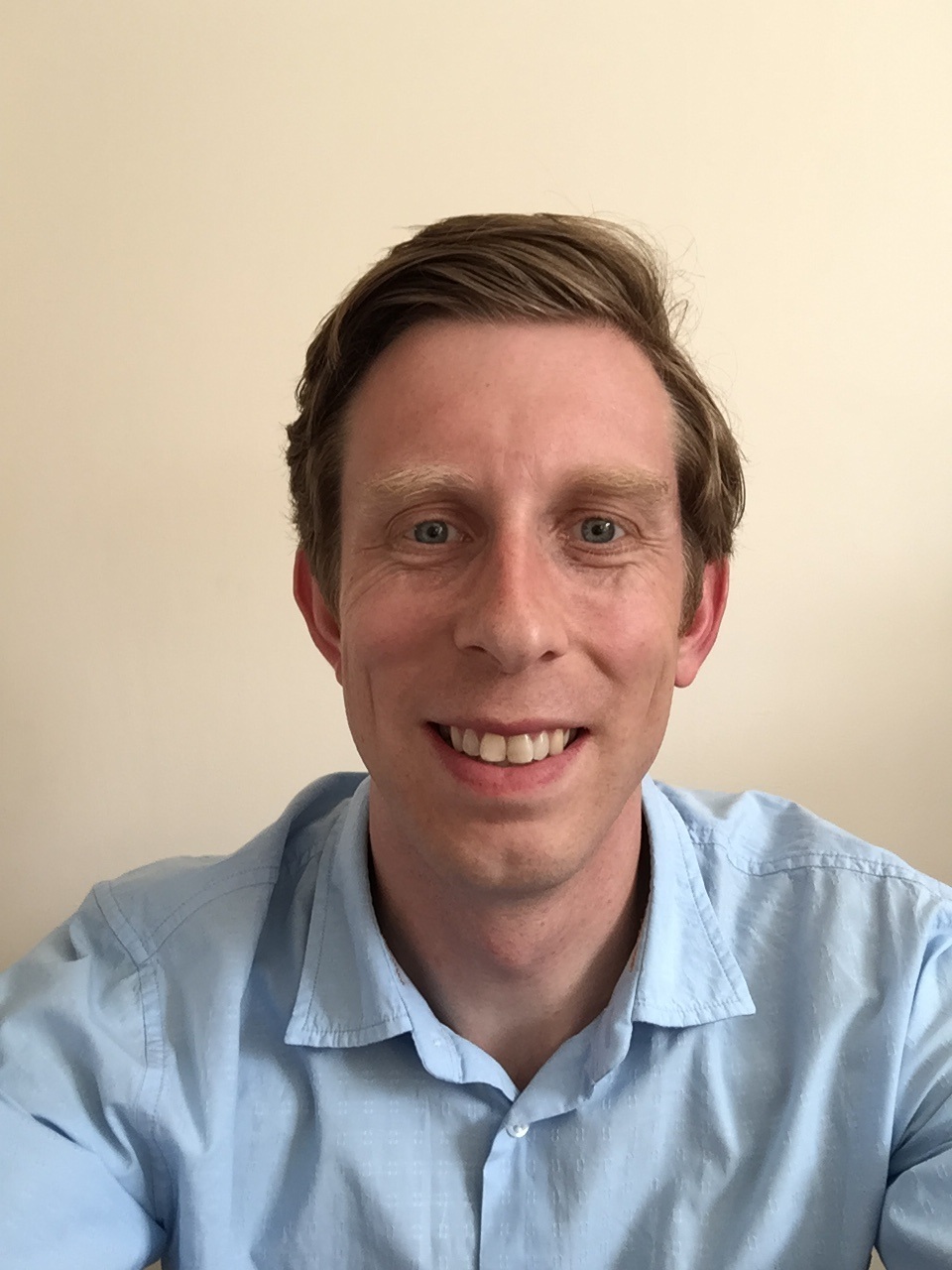 John completed a BA, MA and PhD in the University of York’s Social Policy department. His doctoral thesis focused on inequalities and risks associated with young people’s internet use. He then worked at the Institute for Social Change at the University of Manchester on research examining the impact of poverty and family structure on children’s well-being and development. John joined the School of Health and Related Research (ScHARR) at the University of Sheffield in 2010 where, as part of the Sheffield Alcohol Research Group, he has contributed key evidence to national and international alcohol policy debates. In particular, he worked on the group’s analyses of alcohol pricing policies, which played a central role in the introduction of minimum unit pricing for alcohol in Scotland and continue to inform on-going debates in the UK and around the world. From 2013-2016, John was an advisor to the group developing the UK’s low risk drinking guidelines and led the epidemiological modelling that supported the group’s decision-making. He currently leads an evaluation of the impact of minimum unit pricing on harmful drinkers, research developing the use of theories of practice to study drinking occasions and cultures and a Wellcome Trust Investigator Award examining the sharp decline in youth drinking. John is now the Deputy Director of the Sheffield Alcohol Research Group and is also Deputy Commissioning Editor for the journal Addiction.
John completed a BA, MA and PhD in the University of York’s Social Policy department. His doctoral thesis focused on inequalities and risks associated with young people’s internet use. He then worked at the Institute for Social Change at the University of Manchester on research examining the impact of poverty and family structure on children’s well-being and development. John joined the School of Health and Related Research (ScHARR) at the University of Sheffield in 2010 where, as part of the Sheffield Alcohol Research Group, he has contributed key evidence to national and international alcohol policy debates. In particular, he worked on the group’s analyses of alcohol pricing policies, which played a central role in the introduction of minimum unit pricing for alcohol in Scotland and continue to inform on-going debates in the UK and around the world. From 2013-2016, John was an advisor to the group developing the UK’s low risk drinking guidelines and led the epidemiological modelling that supported the group’s decision-making. He currently leads an evaluation of the impact of minimum unit pricing on harmful drinkers, research developing the use of theories of practice to study drinking occasions and cultures and a Wellcome Trust Investigator Award examining the sharp decline in youth drinking. John is now the Deputy Director of the Sheffield Alcohol Research Group and is also Deputy Commissioning Editor for the journal Addiction.
 Janey is an Amazon No 1 Best-selling author, commentator, and co-presenter on the UK’s biggest radio show, BBC Radio 2’s Steve Wright in the Afternoon. She has twice been voted the No 1 personality in the Natural Beauty Industry Yearbook and runs a busy recommendations website. Janey has written five books on Holistic living including the number One Amazon best seller Imperfectly Natural Woman and currently write columns for many magazines, and runs training workshops and consultations on Media Breakthrough for holistic businesses and solopreneurs. She hosts the annual Janey Loves Platinum Awards to recognise the best in natural and organic products and services with categories for practitioners and wellbeing authors. After ditching the booze Janey has launched a podcast Alcohol Free Life focusing on sober self-care: alcoholfreelife.co.uk, www.janeyleegrace.com.
Janey is an Amazon No 1 Best-selling author, commentator, and co-presenter on the UK’s biggest radio show, BBC Radio 2’s Steve Wright in the Afternoon. She has twice been voted the No 1 personality in the Natural Beauty Industry Yearbook and runs a busy recommendations website. Janey has written five books on Holistic living including the number One Amazon best seller Imperfectly Natural Woman and currently write columns for many magazines, and runs training workshops and consultations on Media Breakthrough for holistic businesses and solopreneurs. She hosts the annual Janey Loves Platinum Awards to recognise the best in natural and organic products and services with categories for practitioners and wellbeing authors. After ditching the booze Janey has launched a podcast Alcohol Free Life focusing on sober self-care: alcoholfreelife.co.uk, www.janeyleegrace.com.
 Wulf has been a qualified social worker for the last twenty-five years. He is currently a Reader in Social Sciences at Social Work at Glyndwr University, having joined the institute in 2010. Prior to this, he combined part-time lecturing at Bangor University with management of alcohol and drug services in both the statutory (criminal justice) and voluntary sectors. This followed a number of practitioner roles associated with alcohol, drugs, mental health and homelessness. Wulf is an active researcher and published author. His primary areas of research interest are; alcohol and other drugs, policy implementation, recovery and service user involvement; and social workers use of knowledge in practice. Along with a range of traditional peer reviewed outputs, he is interested in and been translating research into practice and community facing projects. He is currently involved in a number of research projects for Welsh and Scottish governments with regards to evaluating the impact of minimum (unit) pricing for alcohol. Wulf is also an active with the North Wales recovery community, and volunteers in roles supporting independent and non-funded peer groups. He remains a registered social worker with Social Care Wales. He is currently chair of the New Directions in Study of Alcohol Group and an active member of the British Association of Social Workers substance misuse specialist interest group, and has a long history of chairing/supporting third sector/NGO charity groups. He is co-editor of the journal Practice: Social work in Action. Down time from work revolves around family, food, fell running, cycling, mountains, live music and playing bridge.
Wulf has been a qualified social worker for the last twenty-five years. He is currently a Reader in Social Sciences at Social Work at Glyndwr University, having joined the institute in 2010. Prior to this, he combined part-time lecturing at Bangor University with management of alcohol and drug services in both the statutory (criminal justice) and voluntary sectors. This followed a number of practitioner roles associated with alcohol, drugs, mental health and homelessness. Wulf is an active researcher and published author. His primary areas of research interest are; alcohol and other drugs, policy implementation, recovery and service user involvement; and social workers use of knowledge in practice. Along with a range of traditional peer reviewed outputs, he is interested in and been translating research into practice and community facing projects. He is currently involved in a number of research projects for Welsh and Scottish governments with regards to evaluating the impact of minimum (unit) pricing for alcohol. Wulf is also an active with the North Wales recovery community, and volunteers in roles supporting independent and non-funded peer groups. He remains a registered social worker with Social Care Wales. He is currently chair of the New Directions in Study of Alcohol Group and an active member of the British Association of Social Workers substance misuse specialist interest group, and has a long history of chairing/supporting third sector/NGO charity groups. He is co-editor of the journal Practice: Social work in Action. Down time from work revolves around family, food, fell running, cycling, mountains, live music and playing bridge.
 Professor Theresa Marteau is Director of the Behaviour and Health Research Unit in the Clinical School at the University of Cambridge, and Director of Studies in Psychological and Behavioural Sciences at Christ’s College, Cambridge. She studied psychology at the London School of Economics and Political Science (LSE) and the University of Oxford (Wolfson College). Her research interests include: development and evaluation of interventions to change behaviour (principally diet, tobacco and alcohol consumption) to improve population health and reduce health inequalities, with a particular focus on targeting non-conscious processes; risk perception and communication, particular of biomarker-derived risks, and their weak links with behaviour change; acceptability to publics and policy-makers of government intervention to change behaviour. Current research in her group is funded by Wellcome Trust, Medical Research Council and National Institute for Health Research. She is a Fellow of the Academy of Medical Sciences and the Academy of Social Sciences. In 2017, she was appointed Dame Commander of the Order of the British Empire in recognition of her contribution to Public Health.
Professor Theresa Marteau is Director of the Behaviour and Health Research Unit in the Clinical School at the University of Cambridge, and Director of Studies in Psychological and Behavioural Sciences at Christ’s College, Cambridge. She studied psychology at the London School of Economics and Political Science (LSE) and the University of Oxford (Wolfson College). Her research interests include: development and evaluation of interventions to change behaviour (principally diet, tobacco and alcohol consumption) to improve population health and reduce health inequalities, with a particular focus on targeting non-conscious processes; risk perception and communication, particular of biomarker-derived risks, and their weak links with behaviour change; acceptability to publics and policy-makers of government intervention to change behaviour. Current research in her group is funded by Wellcome Trust, Medical Research Council and National Institute for Health Research. She is a Fellow of the Academy of Medical Sciences and the Academy of Social Sciences. In 2017, she was appointed Dame Commander of the Order of the British Empire in recognition of her contribution to Public Health.
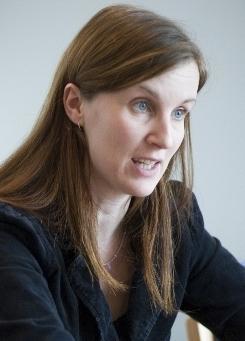 Dr. Helen McAvoy graduated from Trinity College Dublin with a primary medical degree in 1997 and worked for several years in both hospital and general practice. She completed her MD in 2000 as part of the Masters in Health Promotion programme in NUI Galway. She is now working as Director of Policy with the Institute of Public Health in Ireland focussing on progressing the government’s health inequality agenda in Ireland and Northern Ireland. In this role, she has led the development of the governments North South Alcohol Policy Advisory Group and has been recently involved in the review of Northern Ireland’s New Strategic Direction on Alcohol and Drugs-2.
Dr. Helen McAvoy graduated from Trinity College Dublin with a primary medical degree in 1997 and worked for several years in both hospital and general practice. She completed her MD in 2000 as part of the Masters in Health Promotion programme in NUI Galway. She is now working as Director of Policy with the Institute of Public Health in Ireland focussing on progressing the government’s health inequality agenda in Ireland and Northern Ireland. In this role, she has led the development of the governments North South Alcohol Policy Advisory Group and has been recently involved in the review of Northern Ireland’s New Strategic Direction on Alcohol and Drugs-2.
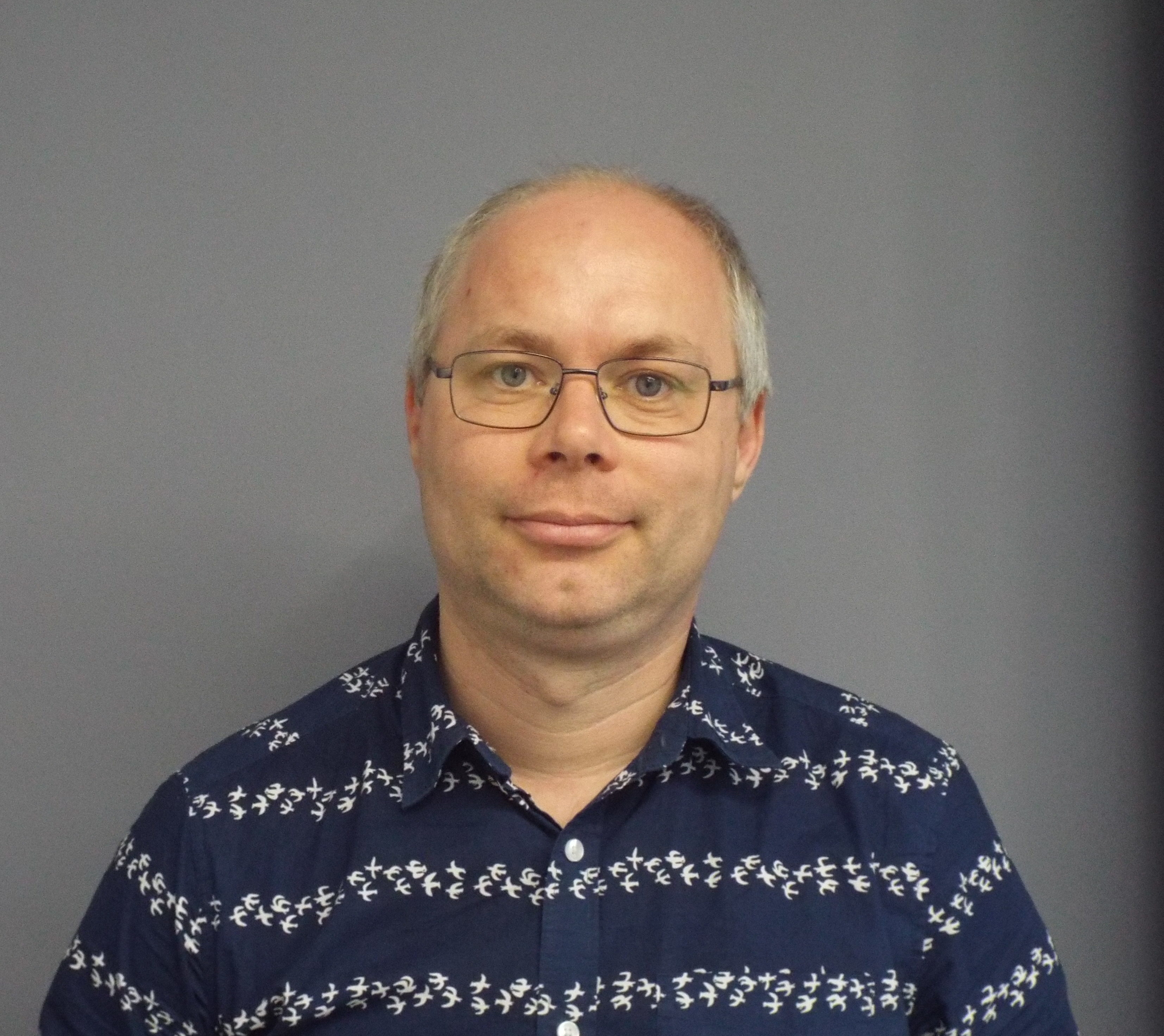 Andrew Misell is Director for Wales at Alcohol Change UK and has led the development of the charity’s work in Wales since 2009. Prior to that he was with Diabetes UK for 10 years, supporting people with diabetes to make their views known to decision-makers. He has also been a Senior Researcher with the Liberal Democrat group in the National Assembly for Wales. He is a great believer in not telling grown-ups what to do. In his spare time, he is the horse racing correspondent of the Welsh current affairs magazine ‘Barn’.
Andrew Misell is Director for Wales at Alcohol Change UK and has led the development of the charity’s work in Wales since 2009. Prior to that he was with Diabetes UK for 10 years, supporting people with diabetes to make their views known to decision-makers. He has also been a Senior Researcher with the Liberal Democrat group in the National Assembly for Wales. He is a great believer in not telling grown-ups what to do. In his spare time, he is the horse racing correspondent of the Welsh current affairs magazine ‘Barn’.
 James is a PhD student at London South Bank University researching the effect of problem framing (i.e beliefs about alcohol problems) on harmful drinker’s self-appraisal of their drinking. He is also Director of the Alcohol Academy, a social enterprise set up to promote skills and learning development in the alcohol field, and is also a keen brief intervention skills trainer. He is editor of Alcohol Policy UK (www.alcoholpolicy.net), a blog to keep the alcohol field updated with related news and activity and has been involved in a number of alcohol policy and advisory groups for the Department of Health and other bodies such as the World Health Organization (WHO). He is also regular speaker for alcohol events and media features and is a committee member for a charity focussing on the development of ideas in alcohol treatment and interventions (www.ndsag.org).
James is a PhD student at London South Bank University researching the effect of problem framing (i.e beliefs about alcohol problems) on harmful drinker’s self-appraisal of their drinking. He is also Director of the Alcohol Academy, a social enterprise set up to promote skills and learning development in the alcohol field, and is also a keen brief intervention skills trainer. He is editor of Alcohol Policy UK (www.alcoholpolicy.net), a blog to keep the alcohol field updated with related news and activity and has been involved in a number of alcohol policy and advisory groups for the Department of Health and other bodies such as the World Health Organization (WHO). He is also regular speaker for alcohol events and media features and is a committee member for a charity focussing on the development of ideas in alcohol treatment and interventions (www.ndsag.org).
 Richard joined Alcohol Change UK as Chief Executive in September 2017, having previously worked for Mencap, NCVO and Roald Dahl’s Marvellous Children’s Charity and provided consultancy to many of the UK’s biggest and smallest charities. He is a trustee of the Children’s Chronic Arthritis Association and is an active volunteer for St Albans Woodcraft Folk.
Richard joined Alcohol Change UK as Chief Executive in September 2017, having previously worked for Mencap, NCVO and Roald Dahl’s Marvellous Children’s Charity and provided consultancy to many of the UK’s biggest and smallest charities. He is a trustee of the Children’s Chronic Arthritis Association and is an active volunteer for St Albans Woodcraft Folk.
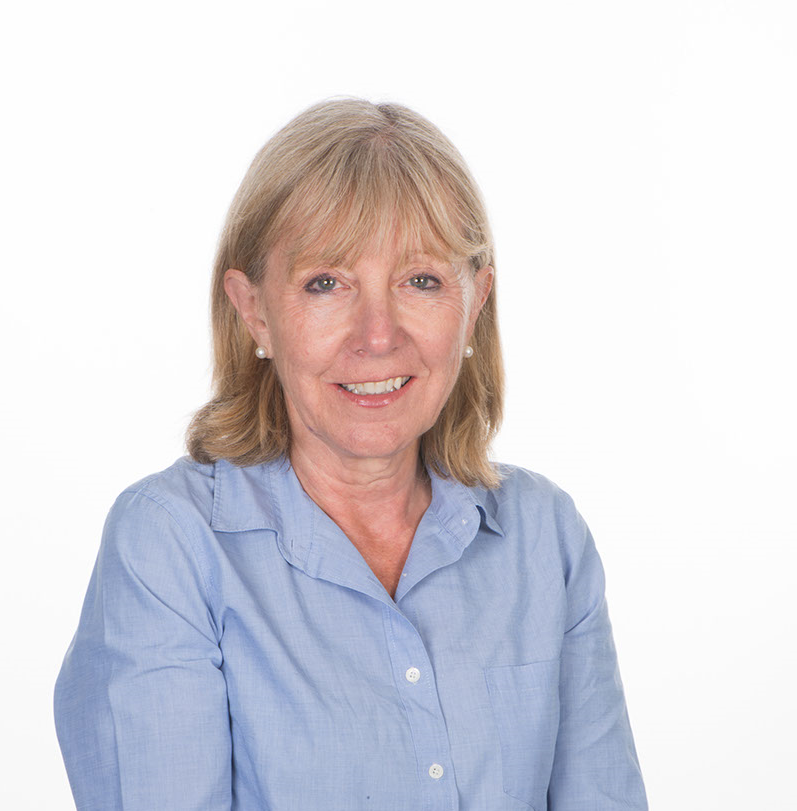 Isabelle Szmigin is a trustee at Alcohol Change UK and Professor of Marketing and Deputy Dean of the Birmingham Business School at the University of Birmingham. Her research focuses on the interaction between consumer behaviour and public policy, with a particular interest in alcohol consumption, social norms and marketing. Her research into alcohol consumption has been funded by the ESRC, Alcohol Research UK and ERAB. She is a governor of Birmingham Universities Hospitals Birmingham NHS Trust and was previously a member of the Portman Group’s Independent Complaints Panel.
Isabelle Szmigin is a trustee at Alcohol Change UK and Professor of Marketing and Deputy Dean of the Birmingham Business School at the University of Birmingham. Her research focuses on the interaction between consumer behaviour and public policy, with a particular interest in alcohol consumption, social norms and marketing. Her research into alcohol consumption has been funded by the ESRC, Alcohol Research UK and ERAB. She is a governor of Birmingham Universities Hospitals Birmingham NHS Trust and was previously a member of the Portman Group’s Independent Complaints Panel.
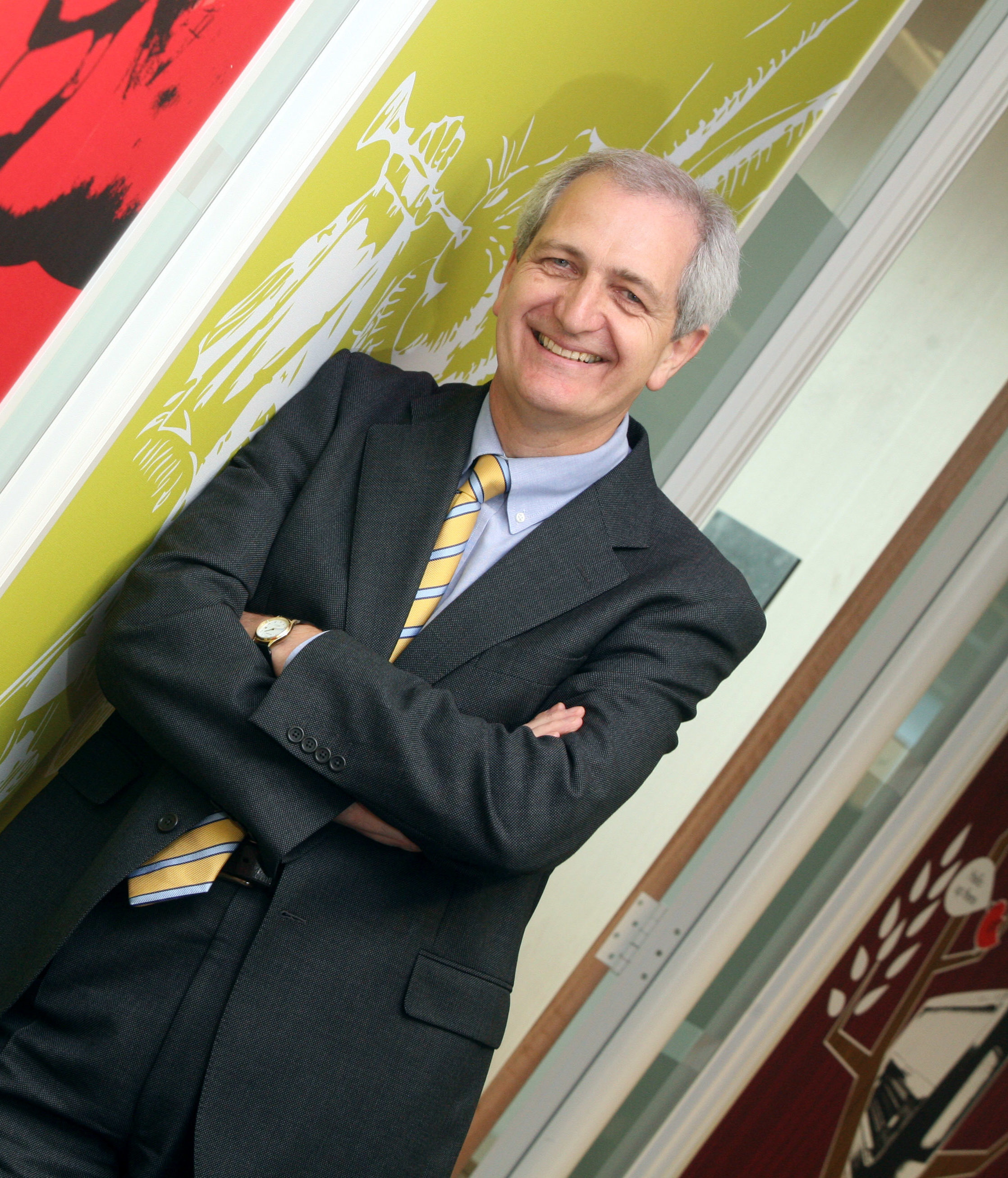 John is interim Chair at Alcohol Change UK and the Director of the Centre for Health Communication Research at Bucks New University and Chief Executive of Freshwater UK, a communications consultancy and media group. John works with many NHS organisations on communication and engagement issues. Much of his work involves dealing with the impact of alcohol misuse both on the healthcare system and in the wider social economy. John is a former journalist with ITV News and the BBC.
John is interim Chair at Alcohol Change UK and the Director of the Centre for Health Communication Research at Bucks New University and Chief Executive of Freshwater UK, a communications consultancy and media group. John works with many NHS organisations on communication and engagement issues. Much of his work involves dealing with the impact of alcohol misuse both on the healthcare system and in the wider social economy. John is a former journalist with ITV News and the BBC.
 Mike has worked in the alcohol field for over 30 years as a provider, service manager and commissioner. He is a senior consultant and trainer at Alcohol Change UK providing guidance and expertise across the alcohol treatment spectrum. Together with Mark Holmes, Mike developed the Blue Light Project, Alcohol Change UK’s ground breaking initiative to develop alternative approaches and care pathways to improve the response to change resistant, dependent drinkers. The project shows that there are positive strategies that can be used with this client group to help turn their lives around.
Mike has worked in the alcohol field for over 30 years as a provider, service manager and commissioner. He is a senior consultant and trainer at Alcohol Change UK providing guidance and expertise across the alcohol treatment spectrum. Together with Mark Holmes, Mike developed the Blue Light Project, Alcohol Change UK’s ground breaking initiative to develop alternative approaches and care pathways to improve the response to change resistant, dependent drinkers. The project shows that there are positive strategies that can be used with this client group to help turn their lives around.
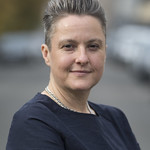 Laura Willoughby MBE is co-founder of Club Soda, the mindful drinking movement. Their aim is to create a world where nobody feels out of place for not drinking. Club Soda has individuals, drinks brands, and social spaces in its membership. The inspiration for Club Soda comes from Laura’s experience of giving up drinking seven years ago. A campaigner at heart with a background in movement building and politics, she realised that one of the big sticking points was a way to support people to take a self-guided journey to change their drinking. Club Soda has over 35,000 individual members, have built a venue listing guide for mindful drinkers (clubsodaguide.com) and runs the UK’s only Mindful Drinking Festival - the next one is on July 20th in Spitalfields, London.
Laura Willoughby MBE is co-founder of Club Soda, the mindful drinking movement. Their aim is to create a world where nobody feels out of place for not drinking. Club Soda has individuals, drinks brands, and social spaces in its membership. The inspiration for Club Soda comes from Laura’s experience of giving up drinking seven years ago. A campaigner at heart with a background in movement building and politics, she realised that one of the big sticking points was a way to support people to take a self-guided journey to change their drinking. Club Soda has over 35,000 individual members, have built a venue listing guide for mindful drinkers (clubsodaguide.com) and runs the UK’s only Mindful Drinking Festival - the next one is on July 20th in Spitalfields, London.